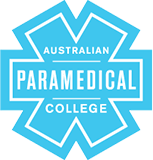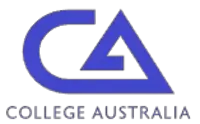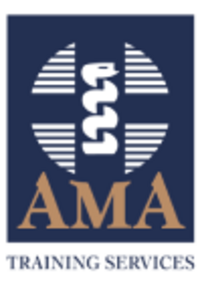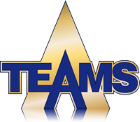
Allied Health courses in Tweed Heads
Course providers in Tweed Heads
The following providers offer Allied Health courses in Tweed Heads.























































Career Pathfinder
Skills shortages + AI Exposure
Discover in-demand careers and understand how each role may be impacted by AI and automation.
- See in-demand occupations across Australia
- Check AI Exposure ratings
- Compare training duration and average income
Common questions
Occupational therapists help patients perform tasks in daily life, while physiotherapists help patients improve their movement, strength and function. The term occupation refers to everyday life tasks, while physiotherapy refers to physical therapy. Both are science-based allied health roles that aim to improve quality of life through prevention, maintenance and treatment.
 Stephen Charlton
Stephen Charlton
You can become qualified to work as an occupational therapist by completing one of the following degrees, depending on your educational pathway:
- Master of Occupational Therapy (postgraduate degree)
Average duration: 24 months - Bachelor of Occupational Therapy (Honours)
Average duration: 4 years - Bachelor of Occupational Therapy
Average duration: 4 years
 Stephen Charlton
Stephen Charlton
You can become qualified to work as a physiotherapist by completing one of the following degrees, depending on your educational pathway:
- Doctor of Physiotherapy (postgraduate degree)
Average duration: 3 years - Master of Physiotherapy (postgraduate degree)
Average duration: 24 months - Bachelor of Physiotherapy (Honours)
Average duration: 4 years - Bachelor of Physiotherapy
Average duration: 4 years
 Stephen Charlton
Stephen Charlton
Yes, you need to complete an accredited degree to work legally as an occupational therapist or physiotherapist in Australia. The two core pathways are completing a bachelor’s degree or a postgraduate degree. The Occupational Therapy Council of Australia and Australian Physiotherapy Council are responsible for accrediting such courses.
 Stephen Charlton
Stephen Charlton
Yes, overseas-qualified practitioners can work in Australia by registering with the Occupational Therapy Board of Australia or Physiotherapy Board of Australia. Practitioners who are currently registered with the Occupational Therapy Board of New Zealand or Physiotherapy Board of New Zealand can apply directly for Australian registration. Other overseas-qualified practitioners have to fulfil the requirements listed on the relevant webpages of the Occupational Therapy Board of Australia and Physiotherapy Board of Australia.
 Stephen Charlton
Stephen Charlton
If you have already completed an approved degree in a different discipline, you can gain an accredited postgraduate degree to become qualified to work as an occupational therapist or physiotherapist. Examples of such degrees are a Master of Occupational Therapy, Master of Physiotherapy and Doctor of Physiotherapy. Postgraduate degrees in these fields may have additional entry requirements, including but not limited to health-related prerequisite subjects.
 Stephen Charlton
Stephen Charlton
In some cases, completing vocational education and training (VET) in a related discipline can allow you to meet the entry requirements for a bachelor’s degree in these fields. Entry requirements vary between educational providers. Some providers offer a VET entry pathway with a minimum of a Certificate IV, but others require a minimum of a diploma or advanced diploma. Some providers do not offer a VET pathway for these courses at all. Therefore, it’s wise to confirm the entry requirements for your desired bachelor’s degree before starting a VET course.
 Stephen Charlton
Stephen Charlton
In addition to completing an accredited degree, occupational therapists and physiotherapists will need to register with the Occupational Therapy Board of Australia or Physiotherapy Board of Australia to work in Australia. The Australian Health Practitioner Regulation Agency (AHPRA) administers practitioner registration on behalf of these boards. There are different requirements to gain registration for Australian-qualified practitioners, New Zealand-registered practitioners, and other overseas-qualified practitioners.
 Stephen Charlton
Stephen Charlton
Career paths for these professions include independent contracting, starting a practice, working in community care, paediatrics, mental health, rehabilitation, disability, medical or aged care sectors).
 Stephen Charlton
Stephen Charlton
Jobs and Skills Australia reports that the median full-time weekly earnings for occupational therapists and physiotherapists in 2024 are $1,526 and $1,710, respectively. These figures can be contrasted with Australian workers of all occupations, who earn a median full-time weekly income of $1,697.
 Stephen Charlton
Stephen Charlton
There is a significant demand for occupational therapists across Australia. Jobs and Skills Australia’s Occupation Shortage List indicates that the labour market had a shortage of occupational therapists across all states and territories from 2022 to 2024.
 Stephen Charlton
Stephen Charlton
There is substantial demand for physiotherapists in Australia. Jobs and Skills Australia’s Occupation Shortage List indicates that the labour market experienced a shortage of occupational therapists and physiotherapists in most states and territories from 2022 to 2024.
 Stephen Charlton
Stephen Charlton
Working as an occupational therapist or physiotherapist comes with the satisfaction of directly helping to improve patients’ quality of life. Furthermore, the job market is promising, as Jobs and Skills Australia reports there is significant labour market demand for both professions. The future outlook is also positive, as Jobs and Skills Australia reports that the annual employment growth in 2024 for occupational therapists and physiotherapists is 2,200 and 4,100, respectively.
 Stephen Charlton
Stephen Charlton
Further reading


What can you do with a Certificate IV in Allied Health Assistance (Physiotherapy)?
3rd March 2022
What can you do with a Certificate III in Allied Health Assistance?
8th January 2020All courses
- HLT33021 Certificate III in Allied Health Assistance
- HLT47321 Certificate IV in Health Administration
- CHC43315 Certificate IV in Mental Health
- CHC53315 Diploma of Mental Health
- HLT52021 Diploma of Remedial Massage
- HLT41120 Certificate IV in Health Care
- HLT54121 Diploma of Nursing
- 22656VIC Advanced Diploma of Myotherapy
- Bachelor of Social Work
- Bachelor of Sport and Exercise Science (Honours)
- HLTINFCOV001 Comply with infection prevention and control policies and procedures
- HLT37315 Certificate III in Health Administration
- BSB40212 Certificate IV in Business (Health Practice Managers)
- Bachelor of Nutrition and Dietetics
- CHCCCS010 Maintain a High Standard of Service
- HLT47315 Certificate IV in Health Administration
- HLT43015 Certificate IV in Allied Health Assistance (Physiotherapy, Occupational Therapy)
- FNS30215 Certificate III Personal Injury Management
- Bachelor of Medical Imaging
- Bachelor of Clinical Exercise Physiology
- Bachelor of Physiotherapy
- HLTPAT001 Identify and respond to clinical risks in pathology collection
- Graduate Certificate in Health Administration
- HLTCAR001 Perform Electrocardiography (ECG)
- HLT23215 Certificate II in Health Support Services (Health Administration)
- Graduate Certificate in Sport and Exercise Science
- Bachelor of Sport and Exercise Science
More about Allied Health courses
If you're considering a career in the burgeoning Allied Health sector, Tweed Heads offers an array of opportunities to kickstart your journey. With a diverse selection of courses available, aspiring healthcare professionals can find training options suited to their interests and career goals. From Medicine to Psychology, students can explore numerous specialisations that cater to the needs of the local community and beyond. The vibrant coastal town of Tweed Heads is not just a picturesque location; it also boasts reputable Registered Training Organisations (RTOs) and industry-recognised providers dedicated to delivering quality education in Allied Health.
Tweed Heads hosts a range of Allied Health courses that empower individuals to contribute meaningfully to the health sector. Whether you are interested in Audiology, Midwifery, or even Massage, there is something for everyone. The training providers in the area are committed to supporting students with the knowledge and skills needed to thrive in their chosen fields. By enrolling in a course, you not only invest in your future but also play a vital role in improving the health and well-being of your community.
Embarking on a career in Allied Health in Tweed Heads can be an exciting and rewarding endeavour. With courses available in specialised areas such as Dentistry, Nutrition and Dietetics, and Alternative Health and Holistic Medicine, students are well-equipped to make a difference in the lives of others. Discover more about the wide range of courses by visiting the dedicated page on [Allied Health Courses in Tweed Heads](https://www.courses.com.au/health/allied-health/tweed-heads) and take the first step towards a fulfilling career that supports the health of individuals and families in the Tweed Heads area.
